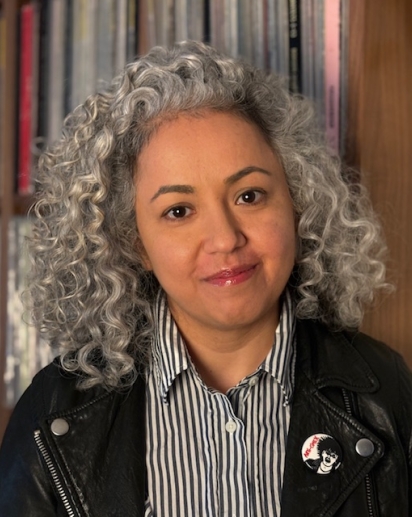To download the episode, subscribe to us in the iTunes store, Spotify Podcasts, and Google Play.
In this episode, Belle interviews Golnar Nikpour, Assistant Professor of History at Dartmouth College, about her recent book, The Incarcerated Modern: Prisons and Public Life in Iran (Stanford University Press, 2024).
In The Incarcerated Modern (and our podcast episode), Nikpour addresses the history of imprisonment and incarceration in Iran, and how it is intertwined with threads of carceral infrastructures traversing the globe from the late nineteenth century to today. We also discuss the transnational solidarity and opposition movements that developed against carceral institutions and practices in Iran and around the globe. Nikpour argues that the history of incarceration is inseparable from what it means to simply be a citizen in Iran, and how crucial it is to not only take into consideration the stories of “political” prisoners, but to recognize that all prisoners are inherently political.
The episode begins with a discussion of how prisons as we now know them developed in Iran in the late nineteenth century in the Qajar era, and were heavily influenced by foreign concepts of reform through imprisonment. Nikpour notes that the Qajars were paradoxically represented as despotic yet also too lenient, allowing lawlessness to flourish. Reformists at the beginning of the twentieth century sought to address this through legal centralization which included establishing prisons and “modern” systems of punishment. European and American criminological norms heavily shaped the Iranian carceral system, as well as associated political, legal, architectural, academic, and medical practices and modes of thought. Nikpour addresses how Iran went from a place with very little forced confinement to one of the top ten most carceral states in the world in just a century.
Nikpour argues that prison became a space of (re)education in Iran in the early twentieth century. Initially, this was primarily in terms of reforming, reeducating, and cultivating proper citizens. She argues that eventually, however, prisoners themselves also used carceral spaces to educate themselves with what resources they had available, or used talking and writing about prison and the experience of imprisonment to help cultivate fellow resistors and revolutionaries.
We discuss how opposition movements in 1970s Iran, specifically guerrilla movements, were tied to the emergent global human rights discourse through their focus on drawing attention to torture in the Shah’s prisons. We discuss gender in particular in this context with well-known women guerrilla warriors who were imprisoned and wrote memoirs about their experiences. These women served as exemplary resistors for others in Iran to emulate, and their memoirs served as evidence and rallying cries for activists around the world.
In honor of May Day, at the end of the podcast, we discuss global movements of solidarity that The Incarcerated Modern helps situate, and also move beyond the book, discussing the movement to free Palestine, as well as Women, Life, Freedom. We end with a discussion of transformative possibility, and imagining what a world without prisons might look like.
Guest
Golnar Nikpour

Golnar Nikpour is an Assistant Professor of History at Dartmouth College. She is a scholar of modern Iranian political and intellectual history, with a particular interest in the history of law, incarceration, revolution, and rights. She teaches on an interdisciplinary set of topics including modern Middle Eastern and North African history, Iranian history, political theory, Islamic studies, critical prison studies, colonialism and decolonization, and women and gender studies. Her first book, The Incarcerated Modern: Prisons and Public Life in Iran was published by Stanford University Press in February of 2024.
Host
Belle Cheves

Belle Cheves is a senior editor at Ajam Media Collective and a Postdoctoral Research Fellow at Bard College. Her research focuses on the history of family in Qajar Iran, specifically on how transformations of marital practices and affective perceptions of gender, race, and ethnicity shifted understandings of kinship, enslavement, and domestic service over the course of the nineteenth and twentieth centuries.
Credits
Episode No. 41
Release Date: 1 May 2024
Recording Location: Philadelphia, PA
Recording Date: 24 April 2024
Produced by Belle Cheves
Audio Editing: Belle Cheves and Nicholas Gunty
Music: Yavaran (Intro: “404 day in heaven;” Outro: “Har Chi”)
Cover Image: Solh va danesh EP. Source: Confederation of Iranian Students (National Union) 1354; courtesy of Golnar Nikpour.









